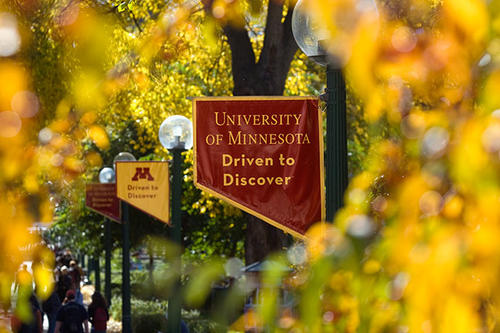
The Masonic Cancer Center, University of Minnesota is pleased to announce that the first Chainbreaker Breakthrough Cancer Research Grant, funded by the $1.2 million raised from the 2017 inaugural Chainbreaker bike ride, has been awarded to a team of 13 Masonic Cancer Center faculty. These faculty members will study the role of stomach microorganisms in causing cancer and their influence on the success of cancer therapy.
Led by Drs. Timothy K. Starr, assistant professor in the Medical School, and Alexander Khorutus, professor in the Medical School, the research team will explore the role of the intestinal microbiome on colon cancer development and the outcomes of bone marrow stem cell transplantation. The study aims to change the current paradigms of cancer care in both diagnostics and treatments.
"Chainbreaker gives us the opportunity to support innovative and collaborative projects that might otherwise not happen," said Jakub Tolar, MD, PhD, vice president for Clinical Affairs and dean of the University of Minnesota Medical School. “Through the support of riders, volunteers and donors, Chainbreaker funds research that changes lives."
In addition to the research projects, the research team will create a University of Minnesota Microbiome Analytics Core staffed with basic and computational scientists who will interact closely with clinicians and cancer biologists to rapidly analyze both samples and data generated. This resource will be available to all researchers in the University of Minnesota system.
“For most of my career, I thought treating cancer was only focused on killing the tumor with little regard for its ‘neighborhood,’” said Douglas Yee, MD, breast cancer researcher, medical oncologist with University of Minnesota Health and director of the Masonic Cancer Center. “We now know the microorganisms in our bodies have a substantial impact on cancer occurrence and treatment. We need to understand the relationship between our ‘bugs’ and ourselves to develop new ways to prevent and treat cancer. Masonic Cancer Center’s multidisciplinary approach, with the help of funds raised from Chainbreaker and the expertise of our faculty, will continue to lead the path forward for cancer research.”
The diverse team of faculty project leaders includes researchers and clinicians from the University of Minnesota Medical School, College of Biological Sciences, College of Science and Engineering, College of Pharmacy and The BioTechnology Institute.
About Chainbreaker
Born in the Twin Cities, the goal of the Chainbreaker bike-a-thon is to provide Masonic Cancer Center’s doctors and researchers with the necessary resources to discover cures for all cancers. One hundred percent of rider-raised dollars go directly to the cause. The 2nd Annual Chainbreaker will take place August 10-12, 2018. Learn more at chainbreakerride.org.
About the Masonic Cancer Center, University of Minnesota
As the Twin-Cities’ only NCI-designated comprehensive cancer center, the Masonic Cancer Center, University of Minnesota is recognized for preeminent scientific leadership, resources, and the depth and breadth of their research in basic, clinical and population sciences. For more than 25 years, researchers, educators, and care providers have worked to discover the causes, prevention, detection, and treatment of cancer and cancer-related disease. Learn more at cancer.umn.edu.
###
- Categories:
- Health




